ऐसे उजड़े आशियाने तिनके उड़ गए
मंजिलों तक आते आते रस्ते मूड गये
हम ठहर जाये जहां उसको शहर कहते हैं
(Homes were ruined in such a way that even the smallest brick (twig) broke, paths turned around just as we reached the destination, we call it a town where we decide to spend the night)
These lines (not exactly the literal translation) from a song in Namkeen, which was directed by Gulzar (born as Sampoorn Singh Kalra), kind of define the Indian poet and lyricist’s journey.
Born in Dina, now in Pakistan, Gulzar came to India during the partition. He did a few odd jobs before he turned assistant to film director Bimal Roy for whom he penned his first song as a lyricist in Bandini.
Sampoorn Singh Kalra chose to be ‘Gulzar’ because the word reminded him of a fragrant garden and brought back good memories. He believed that his poetic persona resonated with the mystic and myriad fragrances of a garden full of varied flowers.
For this ‘shy boy’ whom Meena Kumari found very interesting, poetry was a way of expressing his inner thoughts.
When Bimal Roy read some of his poems, he was quite impressed and told him to write a song for Bandini.
Mora Gora Ang Lai Le marked the birth of a lyricist who would rule the roost in Bollywood for the next five decades.
Hrishikesh Mukherjee, editor of Bandini and a good friend of Bimal Da and his former assistant, spotted talent. Gulzar was a part of his team till the end. He helped him write the dialogues and screenplay of Anand and the song Na Jiya Lage Na in the film.
Soon Gulzar was one of the most sought-after lyricists, especially by filmmakers who preferred sensitive, but simple poetry that touched the hearts of a common man. And the man gave brilliant songs, particularly with RD Burman (Pancham). There were some unique ones like Mera Kuchh Samaan which, according to Pancham, sounded like a piece of news from a newspaper and he had initially refused to compose it. And their first piece together, Musafir Hoon Yaaron which was musically different. The rhythm was set to the tapping of the horse’s hooves since the hero (Jeetendra) is travelling in a horse carriage, but the tune was much slower.
Gulzar wrote this poem after the legendary music director’s death:
याद है बारिशों का दिन पंचम
जब पहाडी के नीचे वादी में,
धुंद से झांक कर निकलती हुई
रेल की पटरियां गुजरती थीं...
मैं अकेला हूं धुंद में पंचम
Of course, he continued writing songs and his songs were never the run-of-the-mill types. He wrote what appealed to his heart and therefore, that in turn, touched the listeners’ heart. He, often, used English words in his Hindi songs quite effortlessly.
He used Urdu or Persian, too, as frequently and his fans swooned without knowing the meaning. Recent example was मेरे रश्के क़मर. He had to explain the term during a public function that it meant ‘a jealous moon’.
Jihale-E-Masti, Mukund-E-Ranjish, Bahar-E-Hijr Bechara Dil Hai, the popular song of 90s is another example. This was a borrowed line from Amir Khusro which means ‘don’t treat my already poor heart with animosity even in fun’. The song started with Khusro’s line and the rest was crafted by Gulzar.
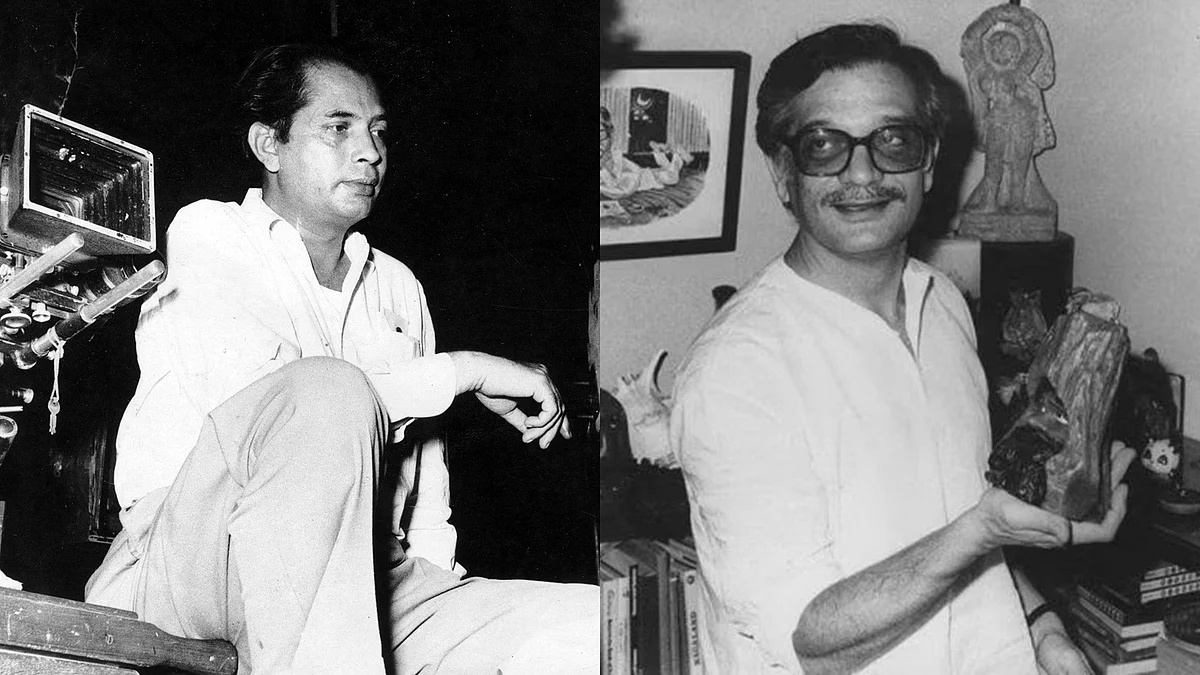
Bimal Roy and Gulzar |
While Bimal Roy prodded the lyricist in Gulzar, Hrishikesh Mukherjee encouraged him to write and direct. Gulzar’s first film Mere Apne was a story of two foes turned friends with the underlying theme of old age and his muse Meena Kumari playing the protagonist along with Shatrughan Sinha and Vinod Khanna.
His film canvas as a director is not so vast as his lyrics (nearly 900) but it is definitely wide-ranging. Be it a film like Koshish about a mute couple with a blind friend or a political satire like Aandhi and Hu Tu Tu or Maachis which spoke about rise of anti-establishment violence in youngsters or a sensitive Mausam/Namkeen that explore tender emotions of women, or a take on Shakespeare’s Comedy of Errors – Angoor! Each film is of a different genre. And each is equally creatively potent.
He dabbled in television too with a series on Mirza Ghalib. He was writer and director. However, much before that, he had written a poem inspired by Ghalib which he used in his film Mausam. The first line was nearly Ghalib’s, and rest was by Gulzar. जी ढूंढता है फिर वही फुरसत ग़ालिब... was the first line of Ghalib’s sher and दिल ढूंढता है फिर वही फुरसत के रात दिन was Gulzar’s song.
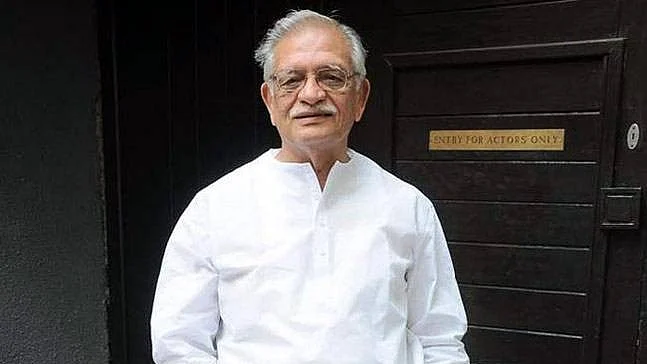
Gulzar |
While the lyricist and filmmaker Gulzar was successful in the Hindi film industry, the poet Gulzar flourished too. He kept writing poetry that expressed his innermost feelings about everything around him – daily affairs, love, romance, war, poverty, friendship… He was affected by most mundane and intricate, outlandish, and sensitive happenings. And his words that flowed in form of a nazm, ghazal or a triveni, bared his emotions.
Triveni was a format that was, kind of, derived by Gulzar. Going away from the traditional form of couplets or four-liners, he wrote three-liners which he termed as triveni. The concept was simple – the third line enhanced the first two, while it was meaningful on its own as well.
एक तम्बू लगा है सर्कस का
बाजीगर झुलते ही रहते हैं
जहन खाली कभी नहीं होता
(inside the circus tent, the trapeze artists continuously swing, the mind is never empty)
This is an example of a typical triveni by Gulzar. Apart from being an example of the format, it is also an example of his thought process and mindset – clinical, analytical, philosophical and yet unreservedly sensitive, romantic.
जिंदगी क्या है जानने के लिए
जिंदा रहना बहुत जरूरी है
आज तक कोई भी रहा तो नहीं।
(it’s important to be alive to understand life, not many achieve that feat)
Sensitivity and sensibility are a part of his shayari. He wrote, when he was upset that the daily newspaper was full of news of killings and terrorism:
रोज सुबह अखबार मेरे घर
खून में लतपत आता है।
(every morning the newspaper comes home bathed in blood)
It is interesting to note that Gulzar wrote romantic poetry with same flair as his philosophical or commentative poems, but a smile and humour can also be seen in romantic poetry. This could, probably, be because of the unique relationship he has with his wife – khatti-meethi.
तुम्हारे ख़्वाब से हर शब लिपट के सोते हैं
सज़ाएँ भेज दो हम ने ख़ताएँ भेजी हैं
(I sleep every evening cuddling to your dreams, send me the list of punishments, I have sent you the list of my mistakes)
Or check this out – for the humour and the use of English words.
मुझे तुमने जमीं दी थी
तुम्हारे रहने के काबिल यहां इक घर बना दूं मैं
कभी फुरसत मिले जब बाकी कामों से, तो आ जाना
किसी ‘वीकएंड’ पे आ जाओ!
(you had given me some land, hopefully I should manage to create house of your liking, do come when free, maybe… on a weekend!)
It is a known fact that Gulzar’s favourite metaphor is ‘moon’, which he has used in many ways and with many names in songs and poetry. While we cannot list all, here are a few examples that show his exemplary relationship with the moon.
इतनी लंबी अंगडाई ली लडकी ने
शोले जैसे सूरज पर जा हाथ लगा
छाले जैसा चांद पडा है उंगली पर।
(she stretched her arms so much that she almost touched the blazing sun, now she has a moon on her finger in the form of a wound)
पूरा हरजाई है, गलियों से गुजरता है,
कभी छत से बजाता हुआ सिटी
रोज आता है जगाता है, बहुत लोगों को शब भर!
आज की रात उफुक से कोई,
चांद निकले तो गिरफ्तार ही कर लो!
(quite a disloyal he is, wanders in the lanes, sometimes on the roof whistling, comes by every day and keeps quite a few awake, if he comes by today on the horizon, someone please arrest the moon!)
Interestingly, the man who plays with the Hindustani language with such ease, cannot write the Devanagri script. He can write only using the Roman or Urdu scripts.
At 91, Gulzar is an epitome of fitness. He plays tennis every day to keep himself fit - physically and mentally. Though he has stopped making films, some friends still manage to coax him to write a song once in a while, and he does that.
Here’s wishing the eternally young at heart man a happy birthday as he turns 91!
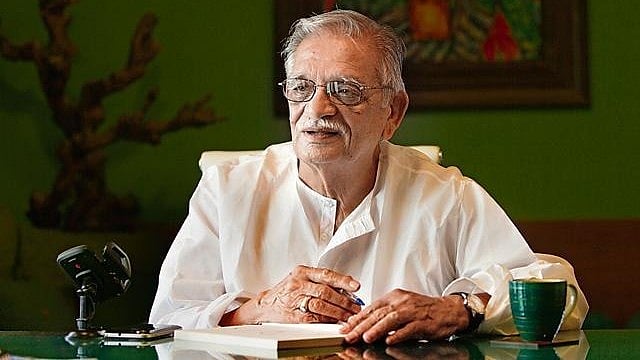




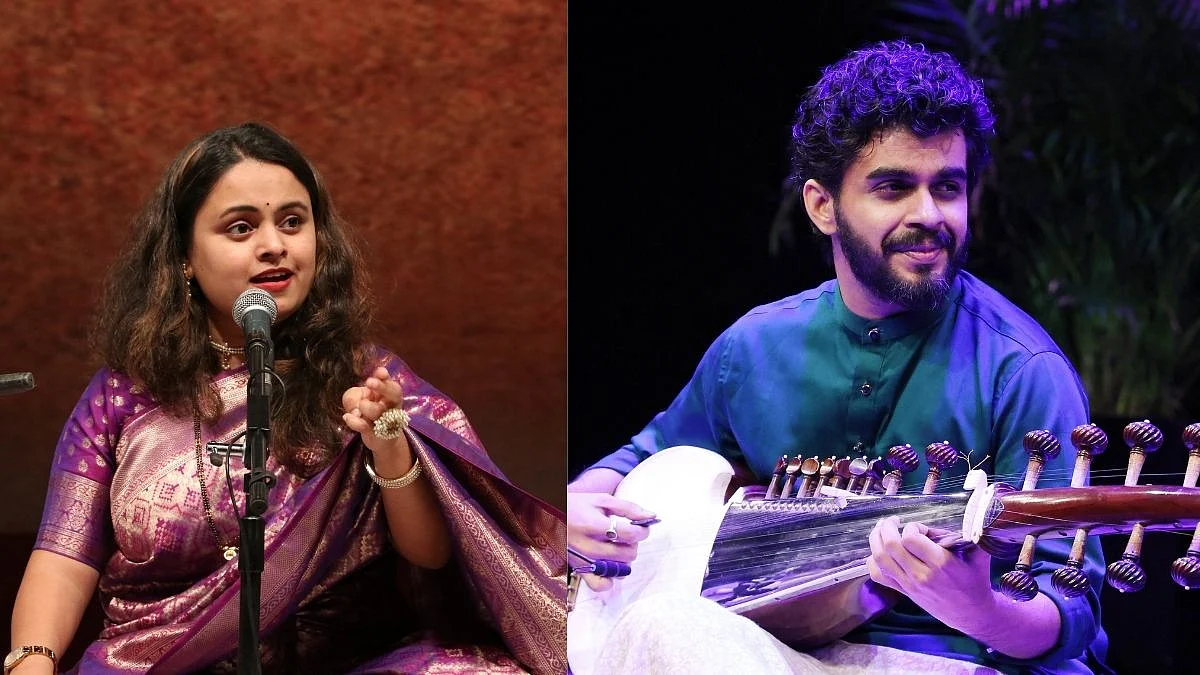



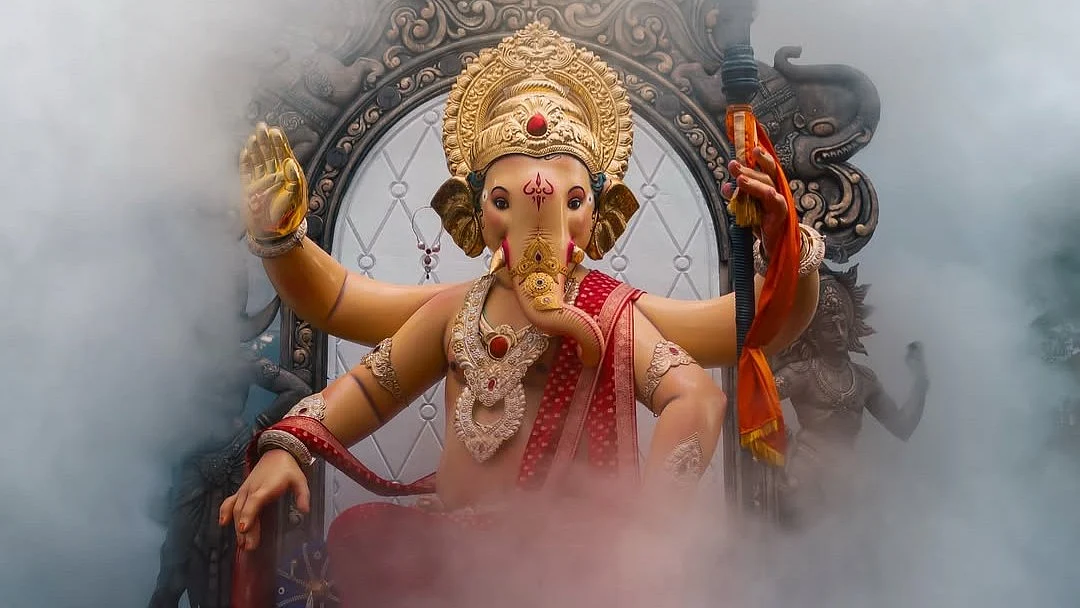

.png)